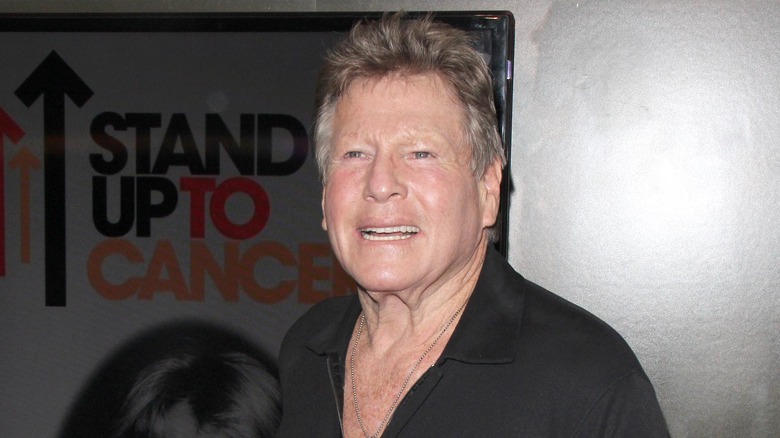Love Story Star Ryan O'Neal's Health Issues Over The Years
Ryan O'Neal, who rose to stardom in the tearjerker "Love Story," died Dec. 9 at the age of 82.
O'Neal was also known for his long-term relationship with actress Farrah Fawcett, beginning in 1979. After a four-year breakup, O'Neal was with Fawcett when she died of cancer in 2009 (per Associated Press).
O'Neal's son, Patrick, posted a tribute on Instagram calling his father his hero. "As a human being, my father was as generous as they come. And the funniest person in any room. And the most handsome clearly, but also the most charming. Lethal combo. He loved to make people laugh. It's pretty much his goal. Didn't matter the situation, if there was a joke to be found, he nailed it."
Although the cause of his death is not yet known, O'Neal battled chronic leukemia in 2001 and stage 4 prostate cancer in 2012. "Although I was shocked and stunned by the news, I feel fortunate that it was detected early and according to my extraordinary team of doctors the prognosis is positive for a full recovery," he told People.
O'Neal's leukemia and prostate cancer
O'Neal's chronic myelogenous leukemia is a rare, slow-progressing type of cancer that affects the bone marrow in mostly older adults, according to the Mayo Clinic. This type of cancer often goes undetected because it doesn't always have symptoms. Symptoms include fatigue, loss of appetite, and sweating during sleep. A blood test typically detects chronic myelogenous leukemia. Although the cause of this type of leukemia is unknown, risk factors include being older, male, and exposed to radiation therapy. Tyrosine kinase inhibitors (TKIs) are typically used to target and treat chronic myelogenous leukemia.
Because prostate cancer cells develop slowly, people often get diagnosed with prostate cancer in its earlier stages, according to the City of Hope Cancer Center. Prostate cancer is treatable in these early stages compared to stage 4, when it has spread to other parts of the body. Stage 4 (or metastatic) prostate cancer comes with symptoms such as bone pain, weight loss, or changes in patterns of urination. Surgery, radiation, hormone therapy, or chemotherapy are some of the treatments for metastatic prostate cancer.
In a YouTube video, O'Neal thanked the doctor who helped treat him. "I'm cancer-free, and I plan to stay that way," he said. "The sky's the limit."


